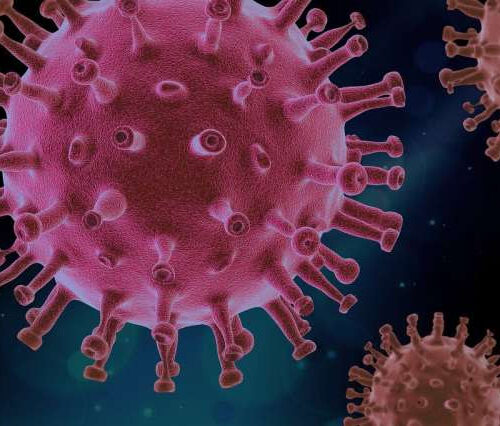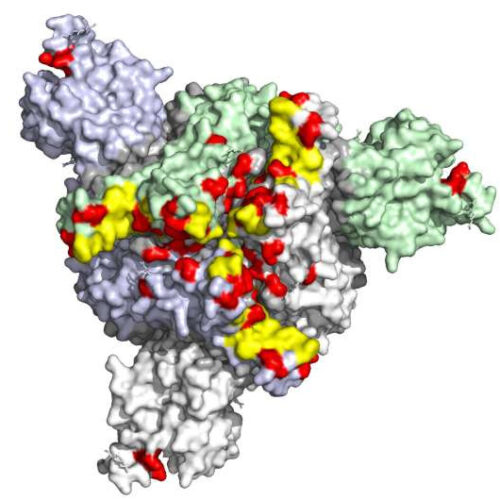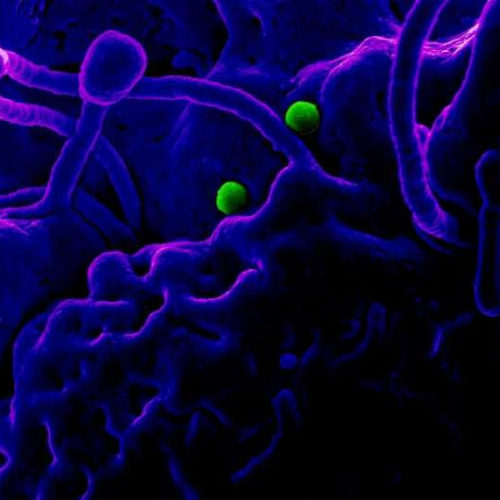by Harvard T.H. Chan School of Public Health Credit: Pixabay/CC0 Public Domain People over age 65 at the highest risk for severe COVID-19 have often been the least likely to receive monoclonal antibodies (mAbs)—a highly effective treatment for the disease—both across and within U.S. states, according to new research co-authored by researchers from Harvard T.H....
Tag: <span>Monoclonal antibodies</span>
Omicron resistant to most monoclonal antibodies but neutralized by a booster dose
by Pasteur Institute 3D visualization of mutations in the spike protein of the Omicron variant. Left: overhead view. Right: lateral view. Mutations are indicated in red. They occur all over the spike protein but particularly in the receptor binding domain (RBD) and in the region known as the N-terminal domain (NTD). Credit: Institut Pasteur –...
Newly generated monoclonal antibodies effective against SARS-CoV-2 and variants
by Kumamoto University The 9-105 antibody neutralizes SARS-CoV-2 completely by binding to vulnerable sites on the spike protein. It even blocks viral replication at low concentrations. Credit: Kumamoto University Japanese researchers have successfully produced potent neutralizing monoclonal antibodies from a patient who recovered rapidly from a severe case of COVID-19. In addition to appearing to have the world’s...
WRAIR, Duke scientists find evidence of monoclonal antibodies activity against malaria
WALTER REED ARMY INSTITUTE OF RESEARCH Scientists at Walter Reed Army Institute of Research, in a collaboration with Duke University, have confirmed that monoclonal antibodies can be an effective tool in the global fight against malaria. The study, led by Dr. Sheetij Dutta, chief of the Structural Vaccinology Laboratory at WRAIR, showed that mAbs such as CIS43...
Monoclonal antibodies against MERS coronavirus show promise in phase 1 trial
by NIH/National Institute of Allergy and Infectious Diseases MERS-CoV particles on camel epithelial cells. Credit: NIAID and Colorado State University A randomized, placebo-controlled Phase 1 clinical trial of two monoclonal antibodies (mAbs) directed against the coronavirus that causes Middle East respiratory syndrome (MERS) found that they were well tolerated and generally safe when administered simultaneously to...
- 1
- 2



